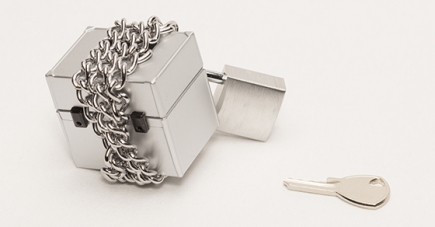Control how your charitable gifts are used by adding restrictions
If philanthropy is an important part of your estate planning legacy, consider taking steps to ensure that your donations are used to fulfill your intended charitable purposes. Outright gifts can be risky, especially large donations that will benefit a charity over a long period of time.
Even if a charity is financially sound when you make a gift, there are no guarantees it won’t suffer financial distress, file for bankruptcy protection or even cease operations down the road. The last thing you probably want is for a charity to use your gifts to pay off its creditors or for some other purpose unrelated to the mission that inspired you to give in the first place.
One way to help preserve your charitable legacy is to place restrictions on the use of your gifts. For example, you might limit the use of your funds to assisting a specific constituency or funding medical research. These restrictions can be documented in your will or charitable trust or in a written gift or endowment fund agreement.
Depending on applicable federal and state law and other factors, carefully designed restrictions can prevent your funds from being used to satisfy creditors in the event of the charity’s bankruptcy. If these restrictions are successful, the funds will continue to be used according to your charitable intent, either by the original charity (in the case of a Chapter 11 reorganization) or by an alternate charity (in the case of a Chapter 7 liquidation).
In addition to restricting your gifts, it’s a good idea to research the charities you’re considering, to ensure they’re financially stable and use their funds efficiently and effectively. One powerful research tool is the IRS’s Tax Exempt Organization Search (TEOS). TEOS provides access to information about charitable organizations, including newly filed information returns (Forms 990), IRS determination letters and eligibility to receive tax-deductible contributions. Access TEOS here: https://bit.ly/1RYWq2x
If you have questions regarding your charitable donations, please contact us.
© 2019
Volunteering for charity: Do you get a tax break?
If you’re a volunteer who works for charity, you may be entitled to some tax breaks if you itemize deductions on your tax return. Unfortunately, they may not amount to as much as you think your generosity is worth.
Because donations to charity of cash or property generally are tax deductible for itemizers, it may seem like donations of something more valuable for many people — their time — would also be deductible. However, no tax deduction is allowed for the value of time you spend volunteering or the services you perform for a charitable organization.
It doesn’t matter if the services you provide require significant skills and experience, such as construction, which a charity would have to pay dearly for if it went out and obtained itself. You still don’t get to deduct the value of your time.
However, you potentially can deduct out-of-pocket costs associated with your volunteer work.
The basic rules
As with any charitable donation, to be able to deduct your volunteer expenses, the first requirement is that the organization be a qualified charity. You can check by using the IRS’s “Tax Exempt Organization Search” tool at https://www.irs.gov/charities-
If the charity is qualified, you may be able to deduct out-of-pocket costs that are unreimbursed; directly connected with the services you’re providing; incurred only because of your charitable work; and not “personal, living or family” expenses.
Expenses that may qualify
A wide variety of expenses can qualify for the deduction. For example, supplies you use in the activity may be deductible. And the cost of a uniform you must wear during the activity may also be deductible (if it’s required and not something you’d wear when not volunteering).
Transportation costs to and from the volunteer activity generally are deductible — either the actual expenses (such as gas costs) or 14 cents per charitable mile driven. The cost of entertaining others (such as potential contributors) on behalf of a charity may also be deductible. However, the cost of your own entertainment or meal isn’t deductible.
Deductions are permitted for away-from-home travel expenses while performing services for a charity. This includes out-of-pocket round-trip travel expenses, taxi fares and other costs of transportation between the airport or station and hotel, plus lodging and meals. However, these expenses aren’t deductible if there’s a significant element of personal pleasure associated with the travel, or if your services for a charity involve lobbying activities.
Recordkeeping is important
The IRS may challenge charitable deductions for out-of-pocket costs, so it’s important to keep careful records and receipts. You must meet the other requirements for charitable donations. For example, no charitable deduction is allowed for a contribution of $250 or more unless you substantiate the contribution with a written acknowledgment from the organization. The acknowledgment generally must include the amount of cash, a description of any property contributed, and whether you got anything in return for your contribution.
And, in order to get a charitable deduction, you must itemize. Under the Tax Cuts and Jobs Act, fewer people are itemizing because the law significantly increased the standard deduction amounts. So even if you have expenses from volunteering that qualify for a deduction, you may not get any tax benefit if you don’t have enough itemized deductions.
If you have questions about charitable deductions and volunteer expenses, please contact us.
© 2019
Donating your vehicle to charity may not be a taxwise decision
You’ve probably seen or heard ads urging you to donate your car to charity. “Make a difference and receive tax savings,” one organization states. But donating a vehicle may not result in a big tax deduction — or any deduction at all.
Trade in, sell or donate?
Let’s say you’re buying a new car and want to get rid of your old one. Among your options are trading in the vehicle to the dealer, selling it yourself or donating it to charity.
If you donate, the tax deduction depends on whether you itemize and what the charity does with the vehicle. For cars worth more than $500, the deduction is the amount for which the charity actually sells the car, if it sells without materially improving it. (This limit includes vans, trucks, boats and airplanes.)
Because many charities wind up selling the cars they receive, your donation will probably be limited to the sale price. Furthermore, these sales are often at auction, or even salvage, and typically result in sales below the Kelley Blue Book® value. To further complicate matters, you won’t know the amount of your deduction until the charity sells the car and reports the sale proceeds to you.
If the charity uses the car in its operations or materially improves it before selling, your deduction will be based on the car’s fair market value at the time of the donation. In that case, fair market value is usually set according to the Blue Book listings.
In these cases, the IRS will accept the Blue Book value or another established used car pricing guide for a car that’s the same make, model, and year, sold in the same area and in the same condition, as the car you donated. In some cases, this value may exceed the amount you could get on a sale.
However, if the car is in poor condition, needs substantial repairs or is unsafe to drive, and the pricing guide only lists prices for cars in average or better condition, the guide won’t set the car’s value for tax purposes. Instead, you must establish the car’s market value by any reasonable method. Many used car guides show how to adjust value for items such as accessories or mileage.
You must itemize
In any case, you must itemize your deductions to get the tax benefit. You can’t take a deduction for a car donation if you take the standard deduction. Under the Tax Cuts and Jobs Act, fewer people are itemizing because the law significantly increased the standard deduction amounts. So even if you donate a car to charity, you may not get any tax benefit, because you don’t have enough itemized deductions.
If you do donate a vehicle and itemize, be careful to substantiate your deduction. Make sure the charity qualifies for tax deductions. If it sells the car, you’ll need a written acknowledgment from the organization with your name, tax ID number, vehicle ID number, gross proceeds of sale and other information. The charity should provide you with this acknowledgment within 30 days of the sale.
If, instead, the charity uses (or materially improves) the car, the acknowledgment needs to certify the intended use (or improvement), along with other information. This acknowledgment should be provided within 30 days of the donation.
Consider all factors
Of course, a tax deduction isn’t the only reason for donating a vehicle to charity. You may want to support a worthwhile organization. Or you may like the convenience of having a charity pick up a car at your home on short notice. But if you’re donating in order to claim a tax deduction, make sure you understand all the ramifications. Contact us if you have questions.
© 2019
Charitable lead trusts offer philanthropic and family benefits
Affluent families who wish to give to charity while minimizing gift and estate taxes should consider a charitable lead trust (CLT). These trusts are most effective in a low-interest-rate environment, so conditions for taking advantage of a CLT currently are favorable. Although interest rates have crept up a bit in recent years, they remain quite low.
CLTs come in two flavors
A CLT provides a regular income stream to one or more charities during the trust term, after which the remaining assets pass to your children or other noncharitable beneficiaries.
There are two types of CLTs: 1) a charitable lead annuity trust (CLAT), which makes annual payments to charity equal to a fixed dollar amount or a fixed percentage of the trust assets’ initial value, and 2) a charitable lead unitrust (CLUT), which pays out a set percentage of the trust assets’ value, recalculated annually. Most people prefer CLATs because they provide a better opportunity to maximize the amount received by the noncharitable beneficiaries.
Typically, people establish CLATs during their lives because it allows them to lock in a favorable interest rate. Another option is a testamentary CLAT, or “T-CLAT,” which is established at death by your will or living trust.
Interest matters
Why are CLATs so effective when interest rates are low? When you fund a CLAT, you make a taxable gift equal to the initial value of the assets you contribute to the trust, less the value of all charitable interests. A charity’s interest is equal to the total payments it will receive over the trust term, discounted to present value using the Section 7520 rate, a conservative interest rate set monthly by the IRS. As of this writing, the Sec. 7520 rate has fluctuated between 2.8% and 3.4% this year.
If trust assets outperform the applicable Sec. 7520 rate (that is, the rate published in the month the trust is established), the trust will produce wealth transfer benefits. For example, if the applicable Sec. 7520 rate is 2.5% and the trust assets actually grow at a 7% rate, your noncharitable beneficiaries will receive assets well in excess of the taxable gift you report when the trust is established.
Act now
If a CLAT appeals to you, the sooner you act, the better. In a low-interest-rate environment, outperforming the Sec. 7520 rate is relatively easy, so the prospects of transferring a significant amount of wealth tax-free are good. Contact us with questions.
© 2019
Have you properly substantiated your 2018 charitable gifts?
Donating to charity is a key estate planning strategy for many people. It reduces the size of your taxable estate and it can help you leave a lasting legacy with organizations you care about.
The benefit of making such gifts during life rather than at death is that you may be eligible for an income tax deduction. Qualifying for a charitable deduction is, in some respects, a matter of form over substance. The IRS could disallow a deduction, even if it’s otherwise legitimate, if you fail to follow the substantiation requirements to the letter.
If you’ve made charitable donations in 2018, it’s wise to review the substantiation rules as you file your 2018 tax return. Here’s a quick summary of the rules:
Cash gifts under $250: Use a canceled check, receipt from the charity or “other reliable written record” showing the charity’s name and the date and amount of the gift.
Cash gifts of $250 or more: Obtain a contemporaneous written acknowledgment from the charity stating the amount of the gift, whether you received any goods or services in exchange for it and, if so, a good-faith estimate of their value. An acknowledgment is “contemporaneous” if you receive it before the earlier of your tax return due date (including extensions) or the date you actually file your return. Also, there’s no need to combine separate gifts of less than $250 to the same charity (monthly contributions, for example) to determine if you’ve hit the $250 threshold for the contemporaneous written acknowledgment requirement.
Noncash gifts under $250: Get a receipt showing the charity’s name, the date, and location of the donation, and a description of the property.
Noncash gifts of $250 or more: Obtain a contemporaneous written acknowledgment from the charity that contains the information required for cash gifts plus a description of the property. File Form 8283 iftotal noncash gifts exceed $500.
Noncash gifts of more than $500: In addition to the above, keep records showing the date you acquired the property, how you acquired it and your adjusted basis in it.
Noncash gifts of more than $5,000 ($10,000 for closely held stock): In addition to the above, obtain a qualified appraisal and include an appraisal summary, signed by the appraiser and the charity, with your return. (No appraisal is required for publicly traded securities.)
Noncash gifts of more than $500,000 ($20,000 for art): In addition to the above, include a copy of the signed appraisal (not the summary) with your return.
Failure to follow the substantiation rules can mean the loss of valuable tax deductions. We can help determine if you’ve properly substantiated your 2018 charitable donations.
© 2019

Walls & Associates is a certified public accounting firm serving the needs of businesses and individuals in the tri-state area of West Virginia, Kentucky, and Ohio. We are confident that regardless of size, we can fulfill your financial and tax accounting needs – whether it is a simple individual tax return, a consolidated multi-state corporate tax return, a nonprofit tax return, or general bookkeeping.
CONTACT US
-
Milton Office Location:
Phone: 304-390-5971
1025 N. Main Street
Milton, WV 25541 -
Hamlin Office Location:
Phone: 304-824-3880
19 3rd Street
Hamlin, WV 25523
WORKING HOURS
| Monday | 8:30 am - 5:00 pm |
| Tuesday | 8:30 am - 5:00 pm |
| Wednesday | 8:30 am - 5:00 pm |
| Thursday | 8:30 am - 5:00 pm |
| Friday | 8:30 am - 5:00 pm |
| Saturday | Closed |
| Sunday | Closed |




